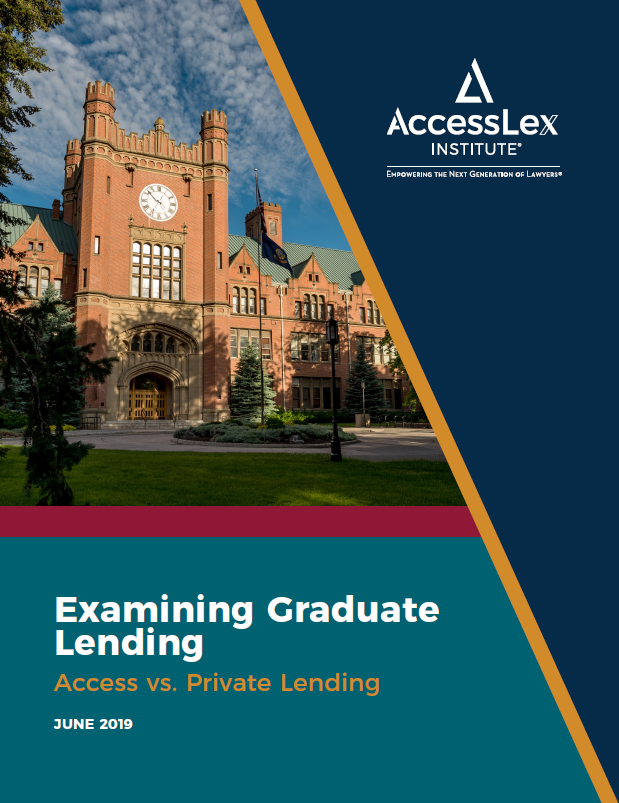Examining Graduate Lending: Access vs Private Lending

This report, the second of our two-part series on graduate lending, uses federal data to show, as one example, that black borrowers and Historically Black Colleges and Universities would likely be severely harmed by a move to significantly limit or outright eliminate federal lending to graduate and professional students.
Executive Summary
Student loan debt has received plenty of attention over the past several years from the media, scholars and policymakers. Increased scrutiny on aggregate and individual debt, especially for graduate and professional students, has led some to question the efficacy and value of some federal loans, arguing the private sector is better equipped to handle providing access to advanced education.
But the value of federal loans is unmistakably clear: they provide access to education to those who would otherwise not be able to afford it. This goal of expanding access to advanced education, which is of no import to private lenders, is critical to maintaining America’s high educational and economic standing. Having formerly been one of the largest private student loan lenders in the country, and given our focus on graduate and professional education, we show in this report that the private sector would be an inadequate substitute for the current federal investment in higher education, especially regarding maintaining access to advanced education for all students.
As Congress deliberates the value of advanced education through reauthorization of the Higher Education Act, it is critical that it is armed with complete and accurate context, data and potential effects of proposed policy changes. Proposals designed to have the federal government retreat from providing loans to those seeking graduate and professional degrees are misguided at best, and if implemented, would substantially hinder access to advanced education for those who need it most.
This report, the second of our two-part series on graduate lending, uses federal data to show, as one example, that black borrowers and Historically Black Colleges and Universities would likely be severely harmed by a move to significantly limit or outright eliminate federal lending to graduate and professional students.
Key takeaways:
-
Changes to programs that would negatively impact and target graduate and professional students (e.g., further limiting or eliminating Grad PLUS, increasing repayment amounts or time to forgiveness, etc.) would be ill-advised because these students are, by far, the best performing cohort of borrowers in the federal student loan portfolio.
-
Private student loan lending is an inadequate substitute for the access-driven investment from the federal government in advanced education. Differing incentives, goals and underwriting means the private sector would be unwilling to risk sacrificing profits to provide access for many students; thus, it could not properly serve the diverse and broad demands of the American workforce.
-
Black borrowers and Historically Black Colleges and Universities would likely be the most substantially harmed by privatization of graduate lending because of the difficulty many students would have obtaining privately financed credit under traditional underwriting standards.
-
Addressing institutional quality and accountability cannot be intermingled with changes to federal loans. Severely limiting or eliminating federal graduate lending should not be used as an end-run around difficult-to-construct accountability systems because doing so would unnecessarily punish students.